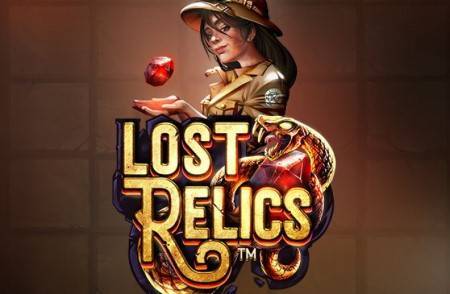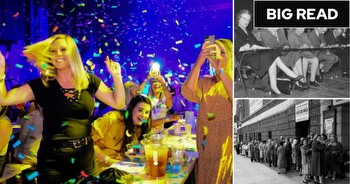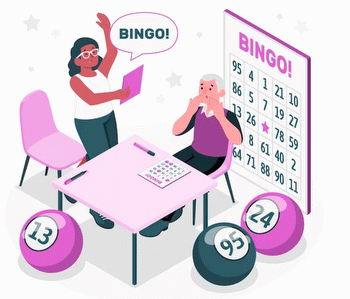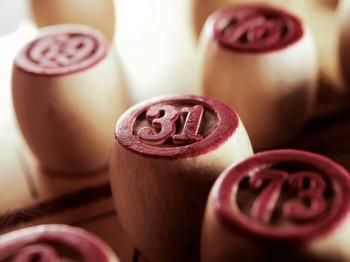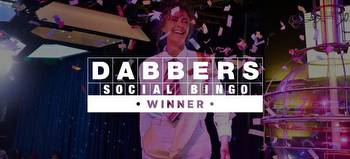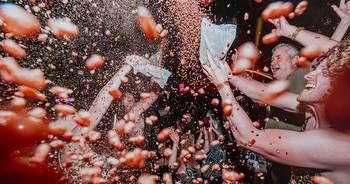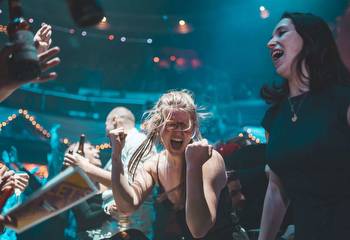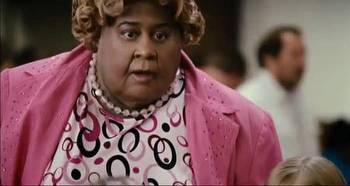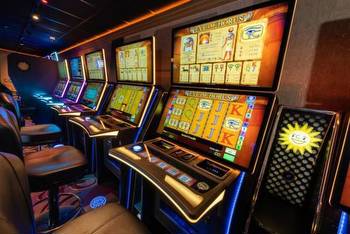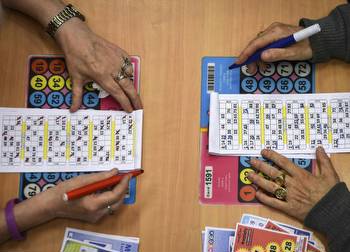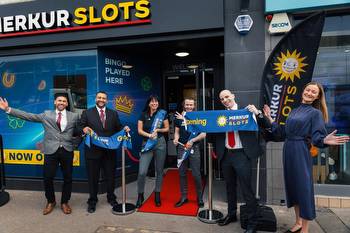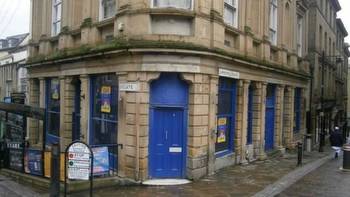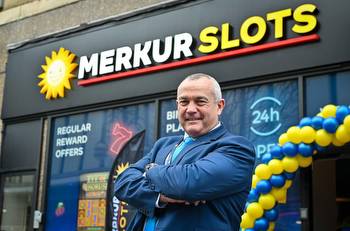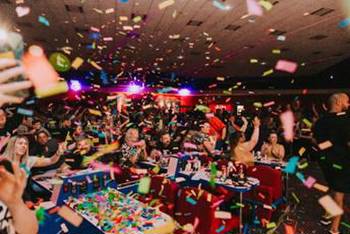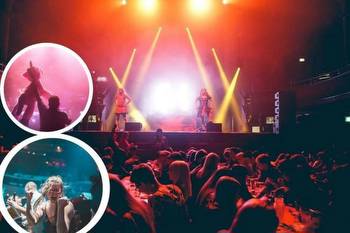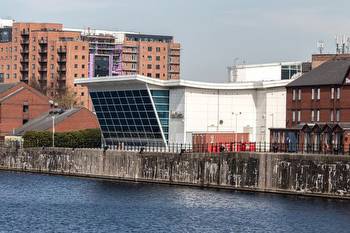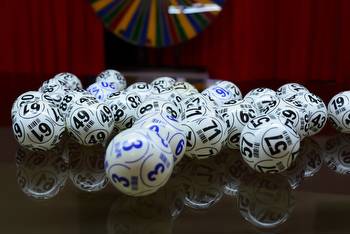‘Oat milk obsession, 37!’ How Britain’s Zillennials Got Hooked on Bingo

As games go, bingo is very, very uncool. It’s laugh-cry-emoji and skinny-jeans uncool. It’s updating-your-Facebook-status-with-a-photo-of-avocado-on-toast uncool. But it’s also just about uncool enough for it to somehow actually be cool – so long as it’s played ironically, that is.
Once conjuring up visions of dabber pens, swirly patterned carpets and sour-eyed OAPs, the game has had a zillennial makeover in recent years. A new breed of bingo game has taken the UK by storm, with the lingo being updated for a new audience too. Out with ‘two fat ladies’ and ‘legs eleven’. In with bingo calls about oat milk, body positivity and cancel culture – all washed down with a shot of tequila.
A quick Google search will show you just how huge (and diverse) the UK market has become today: there’s drag bingo, hip hop lip-sync bingo, musical-themed bingo, Tokyo-themed bingo and bottomless-brunch bingo, to name but a few. So, where did this new generation of bingo event come from? The full story is a lot more complicated than scoring a card and shouting ‘bingo!’
From beano to bingo
Rumour has it that bingo was born in 1500s Italy, where it was known as ‘Il Gioco del Lotto d’Italia’. By the 1700s, it had arrived in France, where ‘Le lotto’ – a game using 27 squares, each with random assortments of numbers from one to 90 – was played by the wealthy. Variations spread to Germany and other European countries, before making its way to the US, where it manifested as a carnival game apparently known as ‘Beano’ (players marked their card with beans, rather than dabbers). Eventually, the game was adopted by American salesman Edwin S Lowe in the late 1920s, who renamed and marketed it as ‘Bingo’, before it migrated to the UK.
Or so the tale goes. Records show bingo and lottery-style games had been played in Britain as far back as the sixteenth century. A variation known as ‘housey housey’ was played by British troops in WWI trenches, and it’s also said that the Catholic Church used the game as a fundraising method in the interwar period. What we know for sure, though, is that bingo had a definitive post-war boom, when traditional calls became almost synonymous with the 1950s way of life. According to Mike Sime, head of bingo at Mecca, the original rhyming calls still associated with the game today were introduced so people would know precisely which numbers were being called: ‘32 – buckle my shoe!’, ‘55 – snakes alive!’, ‘41 – time for fun!’ and so on. ‘The first halls didn’t have monitors or screens, so the calls helped to prevent confusion on what number was being called,’ Sime adds. ‘A bit of a following grew around them, too.’
By the 1960s, bingo had really started to take shape as a Big Night Out: clubs took over former cinemas, celebrity callers were brought in for extra pizzazz and the game went from a working men’s pastime to big business. Whenever new clubs opened their doors in whatever medium-sized-British-town, there’d be long waiting lists for membership and queues out the door. Bingo had the country in a grid-shaped chokehold: everyone was playing it.
And so the fun continued. Familiar bingo calls stayed in use as commercial clubs swelled in size, until blowers and computer draws were introduced in the early 1970s. That made games a lot faster, and larger winnings were on offer, too – rather than scoring a tenner, you could take home £10,000 from a single round. By the 1980s, the old calls were almost entirely phased out of clubs as diehard players replaced the ruckus of the Swinging Sixties. ‘By then, bingo had become about socialised gambling, rather than socialising,’ says Simon Coombes, head of marketing at Merkur. ‘People didn’t want to hear “legs eleven”, they wanted to concentrate on winning. Things got more professional.’
Machine learning
An overhaul of legislation in the early 2000s led to the dramatic loss of bingo halls in all corners of the UK. The 2005 Gambling Act introduced licences and other red tape, which drove up operating costs, while the 2007 smoking ban shaved away the bingo clientele by more than a quarter (back then, 60 percentof bingo players were smokers, and nearly half of them stopped playing when the ban was introduced). Add in the growing popularity of the national lottery, scratch cards and online gambling – not to mention the 2008 recession – and bingo was in big trouble.
To help deal with the decline in attendance, electronic bingo devices were brought in, allowing one person to sit back, relax and play ten books all at once via an automated ‘dabber’ – erasing any slither of skill that remained in the game. The same sorts of devices are still used today, and while they tend to be more expensive to play, you’ll have a far greater chance of winning thanks to it being near-impossible to miss a call.
I knit, I bake. And when I’m not doing that, I’m playing bingo – Annette, 70
Although the mechanisation of bingo might have wiped out much of its charm, that’s not to say the game no longer serves a role for certain demographics (and no, we’re not just talking about gambling addicts). In many ways, bingo halls have become even more vital. Many of the remaining British clubs are community hubs that help people struggling with loneliness. Take Merkur Bingo in Cricklewood, north London, for example, which is open 24/7 and has around 5,000 players come through its doors each week.
‘This is my home from home,’ says Annette, 70. ‘I live alone. I knit, I bake. And when I’m not doing that, I’m here: it’s a nice place, and even better when you win.’ Annette has been playing bingo since she was 18, and she still visits the club three to four times a week: joking with staff, playing dominoes between games and finishing off knitting projects. Meanwhile, Everton, a 62-year-old NHS worker, has been a dedicated player since 1995. ‘They used to put on singing competitions [here] with other bingo clubs,’ he recalls. ‘If you didn’t win at bingo, you could still have fun and forget about it. That’s changed now.’
These days, there’s no singing to be heard: in fact, you’ll be lucky if you hear a dabber drop. As soon as a new round begins, the hall succumbs to silence. Numbers skip off the caller’s tongue with the monotonous speed of an auctioneer: on and on and on, until a single yelp breaks the trance, greeted by glares.
Rave on
As the 2000s marched on, British bingo clubs continued to dwindle. But somewhere along the line, something changed. Bongo’s Bingo arrived on the scene in 2015, putting a rave-y spin to the original game, transforming it into a boozed-up night out more akin to Elrow than your classic stiff-lipped eyes-down. ‘We play using traditional rules, in the exact same way,’ says founder, Jonny Bongo. ‘But we’re also a bit… different.’ Instead of hard cash, players can win giant unicorns, boxes of Coco Pops (which end up doubling as confetti by the end of night) and Henry Hoovers (one viral video shows a punter dancing with his prize in the club). ‘We used to give away mobility scooters – there would be people driving them home at night with their mates in the basket,’ says Bongo.
In contrast to the hush-hush seriousness of old-school bingo, a night at Bongo’s guarantees three hours of cheesy chaos. There’s music between the rounds and the crowd is encouraged to get up on their seats (literally) to dance, aided by jägerbombs, shots of tequila, hypeman hosts and singalong tracks. The bingo calls switch between nostalgic nods to 1950s rhymes and references to tunes like ‘33 – B*Witched’s C’est la Vie!’ (this one always sends players particularly wild). Bongo’s Bingo now takes place in more than 40 locations, and shows sell out months in advance.
Then came Dabbers, which launched its first venue in London back in 2018. ‘The idea was to reinvent [the game] and bring it into the twenty-first century, but still celebrate the golden era when bingo was really sociable, inclusive and fun,’ says Dabber’s founder, Jonny Unknown. Comedians, dancers and other performers pop up between rounds, old-school floor-fillers pump from speakers and retro-inspired treats keep bellies full throughout the night (think: oyster cocktails and vegan jellied eels).
Monotonous calls are swapped out for modern-day variations like ‘haters gonna hate – 48!’, ‘oat milk obsession – 37! ’and ‘prosecco all over the floor – 54!’ There’s a stomach-churning cringiness about it all – not least due to the shameless effort to appear, in some sense, ‘woke’ – but then again, that’s probably the point. ‘When we first opened, we used ‘two body-positive women’ instead of “two fat ladies,”’ says Unknown. ‘We started getting called snowflakes, especially since we’re doing vegan food. But, really, we’re just not taking ourselves too seriously.’
The number of bingo venues in the UK has nearly doubled since 2016
As new-wave bingo started to usher in a new generation of players, traditional providers have also jumped on the bandwagon. ‘It’s come full circle,’ says Sime at Mecca. ‘The earlier part of the week is catered to our hardcore, traditional customer base, then we put on “Bonkers Bingo” at the weekend.’ Twenty-five years ago, there were an estimated 1,200 commercial bingo clubs in the country. Just before the smoking ban, there were about 600, and in 2016, there were around 351. But in 2022, there were 609 bingo premises: things are looking up.
‘If anything, the success of places like Bongo’s has been good, because it means that other people want to experience traditional bingo,’ says Coombes from Merkur. Mecca’s Benj Maycock, who was named National Bingo Game Caller of the Year in 2022, agrees. ‘The 18-to-25 age range has been increasing over the past few months,’ he says. ‘I see loads of young people and couples on date nights who are coming to “normal” sessions now. But I still wouldn’t use “bingo lingo” for those: I’d want to establish a different setting.’
From drag bingo to bottomless-brunch bingo, the proliferation of bingo-themed events you’ll find in any British city speaks to a wider nightlife trend: punters are seeking out more than just a drink and dance floor. They want hard entertainment too. That’s why places like Flight Club, Ballie Ballerson and Mamma Mia! The Party have done so well: immersive, naff, boozy fun has wide appeal. And it’s even more appealing when there’s literally no skill involved. So does that make bingo cool again, at last? Probably not. But – ‘strive and strive, 75!’ – it’s certainly trying its best.







